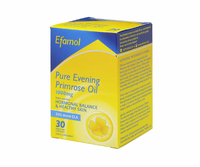Protect your skin from the winter elements

In the bleaker months, the harsh weather assaults our skin. Exposure to extreme environmental contrasts and sheltering in artificially heated buildings can all damage our skin’s appearance.
Understanding how environmental factors such as wind, humidity and temperature affect the condition of your skin can help you protect against common problems such as dryness and itching.
Top tips to save your weathered skin:
Warm as toast - as we spend more hours indoors to protect ourselves from harsh winter weather we are exposing our skin to more time in a centrally heated environment. Central heating creates a low humidity environment that strips skin of its natural moisture, and the sharp contrast to low outdoor temperatures can make skin become more sensitive. Try turning the central heating down a notch or two and placing a bowl of water near radiators to restore the moisture in the air.
Deal with damp - while dryness is a problem for skin, damp conditions in periods of flooding or in coastal properties can be just as troublesome for causing skin allergies. A dehumidifier can reduce the symptoms of damp.
Load on the layers - avoid itchy skin caused by overheating by wearing loose-fitting, breathable fabrics and dressing in layers to allow you to remove clothing.
Shower smartly - water temperature when showering is another consideration, hot water will strip the skin of natural oils. Try to limit showers to no more than ten minutes and avoid the temptation to use a high heat setting.
When the wind burns - the wind and sun together make a fierce combination in cold climates. As wind removes the protective, UV-filtering thin layer of perspiration from your skin making it more vulnerable to the sun’s harmful rays.
If you are heading to the slopes this winter, don’t forget that thin air at high altitude will also intensify the sun’s ability to damage your skin. Covering the skin with garments and a waterproof sunscreen with a high SPF and a creamy moisturising base will help.
Feed your skin - you could also consider taking an essential fatty acid food supplement, such as Efamol Pure Evening Primrose Oil, which will help support the skin from the inside out. Studies have shown it improves skin elasticity, moisture, smoothness and firmness as well as easing irritated skin. Essential fatty acids maintain the skin’s moisture barrier, which may help promote a smooth, glowing complexion. They are also important for regulating the body’s inflammatory processes and found helpful for dry, irritated skin and eczema.
Efamol Pure Evening Primrose Oil is available in 500mg 90s capsules priced at £8.99 from Boots, Holland & Barrett, independent pharmacies and health food stores. Efamol oil, in liquid form, is priced from £7.99 and is available from Holland & Barrett, independent pharmacies and health food stores.
For further information visit efamol.com.
* Muggli R. Systematic evening primrose oil improves biophysical skin parameters in healthy adults. International Journal of Cosmetic Science. 2005;27(4):243-249
**August 2006. Morse N, L and Clough P, M. A meta-analysis of randomized, placebo-controlled clinical trials of Efamol® Evening Primrose Oil in Atopic Eczema. Where do we go from here in light of more recent Discoveries? Current Pharmaceutical Biotechnology

